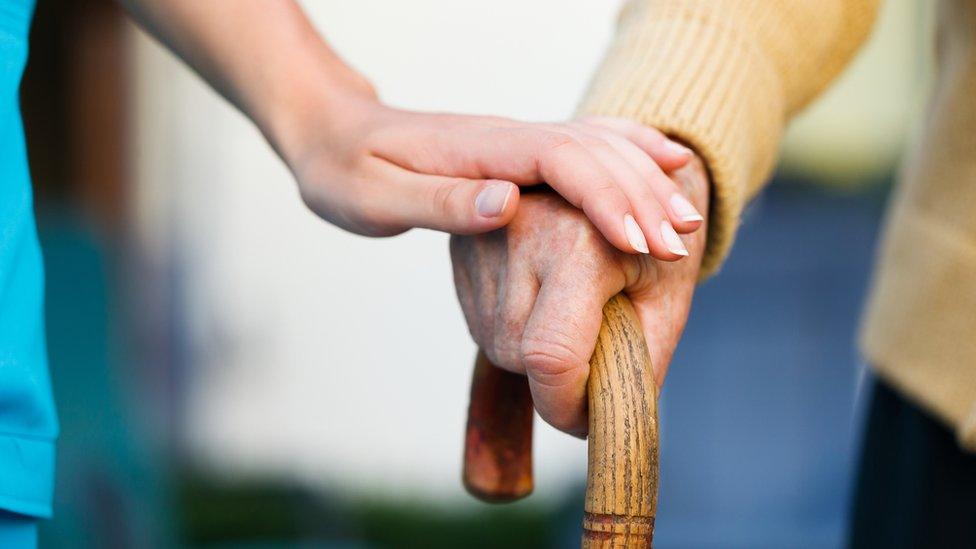£73m of Wales council tax written-off as debt in 10 years
- Published

More than £73m of unpaid council tax has been written off by Welsh councils as "bad debt" over the last decade, figures show.
Last year, residents paid more than £1.3bn for the charge, which helps pay for services such as bins, libraries, swimming pools and the police.
About £6.4m was written-off in 2016-17 alone after residents failed to pay.
The Welsh Local Government Association (WLGA) said councils deliver a "highly efficient" approach.
Last year, councils collected the largest percentage of council tax payments since the charge was introduced in 1993 - with 97.4% of payments collected, official statistics show, external.
This is slightly up on the percentage paid in 2015-16.
Flintshire and Monmouthshire recorded the highest in-year collection rate at 98.1%, while Blaenau Gwent recorded the lowest at 93.8%.
But analysis of the Welsh Government figures shows between April 2006 and 2017, Wales' 22 local authorities wrote-off £73.2m in council tax which had not been paid.
Last year the total amount of arrears owed to councils fell by £2.1m or 2.4%, to £84m.
'Sympathetic approach'
Not all of the debt was from charges generated that year, with some unpaid accounts being rolled over from the previous year.
While local government services are not fully funded by council tax, with authorities getting a share of a grant from the Welsh Government, the cash helps to pay for the running of schools, bin collections and other services. A portion also goes towards a precept that funds the police service.
A spokesman for the WLGA said councils achieve a 97.4% collection rate - raising more than £1.3bn a year.
"This is the highest ever collection rate which demonstrates how our local councils are delivering a highly efficient but sympathetic approach to local taxation," he added.
"Wales continues to perform strongly compared to councils in England or Scotland. The amount of council tax arrears outstanding has levelled off and has started to slowly reduce."
He also said local authorities are working with groups such as Citizens Advice Cymru to help residents struggling with finances.
- Published3 May 2017

- Published5 February 2017

- Published23 March 2017

- Published12 December 2016
